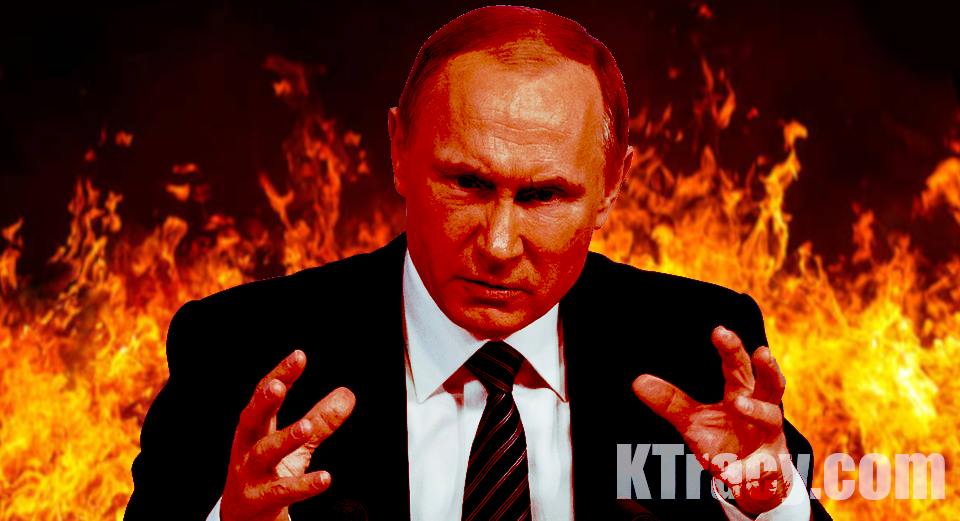Realistic Look at the State of the War in Ukraine

Civilian Battlefield Assessment
Ever since the Ukrainian military first pushed back the Russian Blitz at the start of their invasion, the British media has cited sources from their domestic intelligence agencies that claimed Russia was on the verge of total military defeat. Over the past 12 months, it has become apparent that British media cannot be trusted when it comes to war reporting. In fact, any reporting on Russia's dwindling military reserves, recruiting woes, demoralized soldiers, and failing leadership needs to be met with a good amount of skepticism. Russia may be losing territory in Ukraine, but they have been able to provide a shockingly good defense against the months-long Ukrainian counteroffensive. While this doesn't mean Russia is on the verge of winning the war, it does mean they're not on the verge of losing it.
This stalemate can be largely attributed to the Russian forces' efforts to defend their positions over the winter of 2022-2023 after being beaten back in embarrassing fashion in a surprise Ukrainian counteroffensive at the end of 2022. Although Ukraine has recently managed to break through those hardened defensive positions in at least one strategic spot in recent weeks, it has not led to a wider collapse of the Russian lines as many civilian analysts predicted, likely because they were relying on British sources. At the same time, it is almost remarkable that with the massive influx of NATO weapon systems and ammunition, the Ukrainian military has not made significantly more progress. According to a recent report, Ukraine is supposedly firing an average of between 2,000 and 3,000 rounds of artillery at the Russian lines every day. Although there are more efficient ways to do this, those rounds could have cleared paths through Russian minefields that have kept the Ukrainian military frustratingly stagnant for months.
Ukraine appears to be taking a very conservative approach towards pushing the Russians out of Ukrainian territory. It is suspected that in the first part of the year, the Ukrainians suffered pretty severe losses to NATO provided weapon platforms unaware of the Russian fortifications. With support waning in the United States and supply running low in the rest of NATO, Ukraine might be afraid to take risks and be overly assertive, even as the Russian lines appear to be finally showing stress fractures.
NATO Weapon Systems in Ukraine
Although NATO nations are united in not wanting to see Russia take over Ukraine, their motives for providing weapon systems was somewhat more practical. Prior to the Russian invasion of Ukraine, most NATO members that had been former members of the Socialist Bloc were still using Soviet-made tanks, aircraft, and artillery. Other NATO members were using increasingly outdated American weapon platforms, like the F-16 Fighting Falcon; which started production in 1976 (It's 48 years old!). The War in Ukraine gave these NATO members an awesome opportunity to dump their old, antiquated weapons off on Ukraine; who was more than eager for the help. The NATO countries that sent tanks and planes to Ukraine then would have leverage to purchase newer weapon systems from the United States, Britain, and Germany at a lower price while providing an incentive for voters at home to finally support using taxpayer dollars to upgrade their arsenals (by essentially giving them no choice).
The problem is that many of those old planes were in states of disrepair and were only being used for scrap. At this point, the former Socialist Bloc nations have only the bare minimum for border defense and airspace deterrence until they can get the new shipments of American, British, French, and German weapons. Even when those weapons come, they're going to be a lot less eager to just give them to the Ukrainians. That would be assuming the United States would even give permission for those weapon platforms to be sent to Ukraine.
The end result is that there are fewer weapons and dangerously little ammunition left among the European NATO members to give to Ukraine. If production of ammunition isn't ramped up immediately, Ukraine will be in serious trouble by the start of 2025, and perhaps as early as summer 2024.
Biden Administration Has Stalled the Ukrainian Counteroffensive
The Biden Administration has been taking a very callous approach to sending weapon systems to Ukraine. It's been my critique for over a year that under President Biden, the United States has only given Ukraine "just enough" to keep them in the fight. If the United States committed everything it eventually committed to the war effort after Ukraine first stopped the Russian invasion, the Ukrainians would have likely been able to push the Russians back even further, possibly even back to the pre-invasion borders. If the Biden Administration really wanted to, they could have supplied Ukraine with the weapons and resources they needed in order to end this war and retake Crimea by the end of this year.
There are a couple different conspiracy theories I have to explain this. Neither may be true, but I would be curious to hear what the community thinks.
- The Biden Administration is attempting to keep Ukraine in chaos and dependent on the US President and his party for military assistance. As long as they provide just enough to keep them in the fight, Zelensky and his government won't release damning information about deals between Hunter Biden and corrupt Ukrainian nationals. Alternatively, Joe Biden is reluctantly giving Ukraine just enough so that the Ukrainians don't provide that information to the American media. It certainly seems like Congressional Republicans and right-wing conspiracy nuts believe for latter, but I'm inclined to think the former is more likely true if either of them are.
- The United States wants to punish Russia by keeping them deadlocked in a yearslong war, similar to Vietnam, the Soviet and American wars in Afghanistan, and the United States in Iraq. In doing so, the United States is getting a detailed look at how the Russians fight a military conflict against a western, NATO-like opponent; which is going to be of enormous value for the intelligence communities of every single NATO member. Personally, I'm most inclined to believe this conspiracy theory to explain why the US is doing so little to help the Ukrainians defeat the Russian invasion swiftly.
Russian Reserves
In February 2023, I cited a UK source that said 97% of the Russian Army had been deployed to Ukraine; which I immediately caveated with an "if true" statement. Again, we know now how notoriously unreliable reporting out of the UK has been on the war. British reporting is capitalizing on a unverifiable information void about the status of the Russian military. The state media has been exceptionally responsible in reporting on the war, leading to no obviously actionable intelligence landing in the west and no trustworthy information about the dispersion of Russian forces on the Ukrainian front, at the border with Finland, or across the rest of the country.
Regarding that February 2023 report about 97% of the Russian Army being deployed to Ukraine, it would lead us to believe only 3% of the military was left on the Finish border; manning administrative posts in Moscow and St. Petersburg; patrolling the borders with North Korea, China, and Mongolia; keeping an eye on Chechnya, Georgia, and Ossetia; and advising in foreign conflicts. That simply doesn't make sense.
When the Russians began aggressively conscripting men throughout the country, I think it was assumed that most of these men would be given a rifle and told to march in the direction of Ukraine. While this may have happened in some cases, I would expect this would have weakened Russia's positions as the soldiers would be woefully undertrained in tactics and eager to surrender; which we saw more of in 2022 than thus far in 2023. Instead, I suspect the conscripts largely ended up doing border patrols in nearby areas while those trained soldiers were sent to the front lines in Ukraine.
This is entirely conjecture, however. There is remarkably little information about this that isn't shared through the filter of Ukrainian or Russian propaganda.
Although it's tempting to be encouraged that Russia is buying weapon systems from Iran, China, and North Korea; I suspect this is more about domestic propaganda and giving Russian allies a chance to test weapons against American and western weapons. We should be wildly skeptical of any report that makes it sound as though Russia needs these weapons. It is not unlike a Chinese report saying the United States needed Mongolian and Japanese troops during Operation Iraqi Freedom. For Japan and Mongolia, it was a opportunity for their soldiers to get real world experience. For the United States, it was an opportunity for George W. Bush to show the size and scope of his international coalition and it wasn't a unilateral war. There were practical and political reasons for the arrangement, just like there are practical and political reasons for Russia to use foreign weapons in Ukraine.
NATO vs Russian Willpower
Unless the Russians are truly in dire straits, everything indicates this is going to be a war of attrition. Will Vladimir Putin's health and influence outlast the will of NATO to continue funneling weapons, ammunitions, and supplies into a Ukrainian military that seems afraid to take the risks necessary to bring the war to a quick end and suffering from graft and corruption. Zelensky is obviously trying to take care of the graft problems aggressively; which is risks depleting his army of experienced commanders like Russia's command structure and early losses depleted their military of experienced generals.
Ukraine's ability to score military victories, punish graft, and battle corruption is only going to do so much to preserve the willpower of NATO's leaders as, one-by-one, all NATO countries are going to have elections and eventually the people will tire of spending billions of dollars on a seemingly never ending war.
Vladimir Putin recognizes this and, if he can outlast NATO's political patience, he has a very real opportunity to forever be remembered as the man who reunited the Russian-Orthodox Church, restored Ukraine to Russian rule, and reestablished the Russian Empire.









